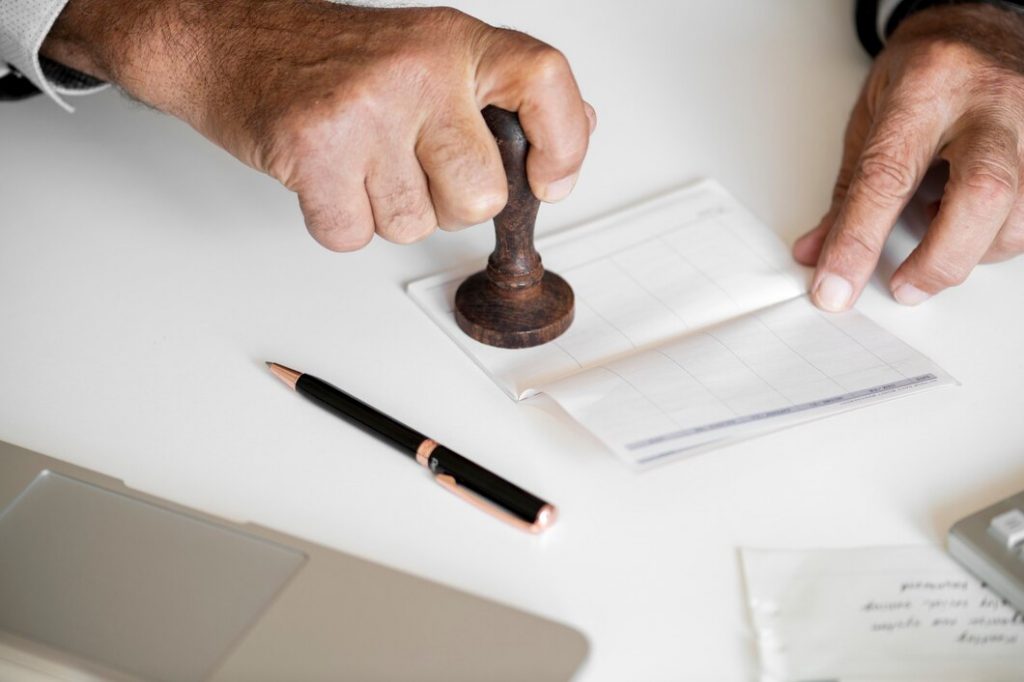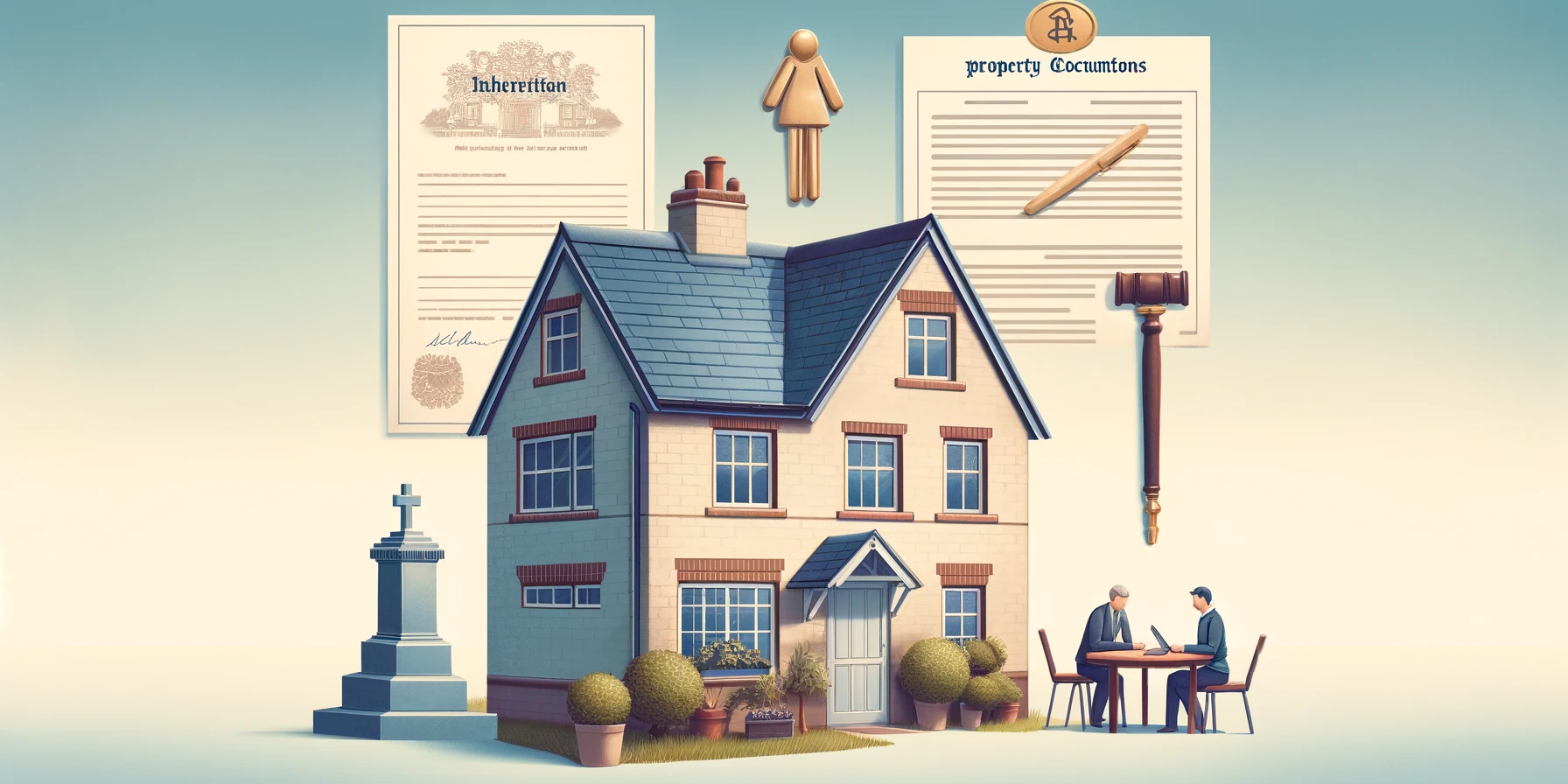When a property owner in the UK passes away, understanding the legal steps that follow is important for everyone involved, be it family members, beneficiaries, or executors. If the deceased was the sole owner of the property, their estate is usually responsible for dealing with the home. The process depends heavily on whether there is a will in place and if the property is under a mortgage.
In cases where a will has been left, the property will generally pass to the named beneficiaries. If you’re a beneficiary, you would likely receive the property through a process known as ‘assent’. However, if the property is to be sold or transferred to someone else, legal forms such as the Transfer of Whole of Registered Title by Personal Representatives (form TR1) come into play.
If you find yourself in a situation where the property was jointly owned, matters can be less complex. The principles of survivorship apply, and the property may automatically pass to the surviving co-owner. Yet, it is still vital to notify the relevant bodies, such as the HM Land Registry, to update the property records to reflect the change in ownership.
Understanding the Legal Process
When a property owner passes away, managing their house involves specific legal steps. You’ll need to navigate through estate evaluation, probate application, and potentially additional legal procedures before the property can be transferred or sold.

Estate and Probate
Firstly, the estate of the deceased encompasses all assets owned, including their house. The process of probate is the legal authority to deal with the estate; this includes collecting assets, paying debts, and distributing what’s left to the rightful beneficiaries.
- If the deceased left a will, the named executor takes on this role.
- Without a will, a close relative typically applies to be an ‘administrator’, handling these affairs.
It’s often wise to seek legal advice to ensure you comply with all legal requirements and duties involved.
Grant of Probate and Letters of Administration
A Grant of Probate is official recognition of your authority to deal with the estate, required especially when a house is part of the assets.
- You can apply for a Grant of Probate if you’re named as an executor in the will.
Letters of Administration are the equivalent when there’s no will.
- Applies to those eligible to be administrators, such as next of kin.
In either case, once you obtain the necessary documents, you’re recognised as the personal representative with legal backing to manage the estate’s property. Assistance from a solicitor may be essential if you’re unfamiliar with the process.
Registration and Ownership Transfer

When a property owner in the UK passes away, the registration of their death and the subsequent transfer of property ownership is a legal necessity. These processes are crucial for ensuring the property is rightfully transferred to the intended beneficiaries.
Registering the Death
You must register the death with a death certificate, which is a formal record of the owner’s passing. This document is essential for the legal process that follows. You’ll need the death certificate to deal with the deceased’s assets, including their house.
Property Ownership Types
Understanding the type of ownership is essential when a property owner dies. The property may have been owned as joint tenants or tenants in common. With joint tenants, the property automatically passes to the surviving owner(s). In contrast, tenants in common allow the deceased’s share to be managed according to their will or the rules of intestacy, which dictate the transfer of assets if there’s no will.
Transfer of Title Deeds
To transfer the title deeds to the new owner, the process will differ based on whether the property was registered or unregistered. If the property is registered:
- For joint tenants, you must update the Land Registry to remove the deceased from the title.
- For tenants in common or sole owners, you need to submit an Assent (form AS1) for the beneficiary to inherit, or a Transfer (form TR1) if the property is being sold.
The legal title to the property can only change hands through the correct legal procedures, so ensure all forms are correctly filled and submitted to the Land Registry. Understanding these nuances is pivotal in successfully navigating the complexities of property transfer after death.
Joint Ownership and Its Implications
When a property is owned jointly in the UK, the implications for what happens after one of the owners dies can vary greatly depending on the class of joint ownership.
Joint Tenants
If you own a property as joint tenants, upon the death of one owner, the right of survivorship comes into play. This means that the interest of the deceased owner automatically transfers to the surviving joint owner(s), regardless of any wishes stated in the deceased’s will. For spouses or civil partners, this form of joint ownership is common, as it ensures that the property does not enter probate but instead passes directly to them.
Tenants in Common
In contrast, if you are co-owners of a property as tenants in common, each owner holds a distinct share of the property, which can be passed on to a beneficiary of their choosing when they die. This type of ownership enables you to bequeath your portion of the property to someone other than the joint owner. In the absence of a will, the deceased’s share is distributed according to the rules of intestacy. As tenants in common, you may also change your share of ownership at any time, reflecting each owner’s financial contribution to the property.
Will and Intestacy Rules
When an individual owning a house in the UK passes away, the management of their estate, including their house, is determined by whether they have left a will and the applicable intestacy rules.
Presence of a Will
If you have left a will, it specifies how your property should be distributed among your chosen beneficiaries. The executor you’ve nominated will be responsible for handling your estate and ensuring that your house is transferred to the individuals or entities you’ve designated. This process is legally formalised through a procedure called grant of probate.
Absence of a Will
In the absence of a will, the rules of intestacy apply. Your spouse or civil partner is usually the primary beneficiary, often entitled to a significant portion of your estate, including your house. Additional relatives may inherit based on a predetermined order set by the intestacy rules. For example, if you and your civil partner or spouse have children, the children would inherit a portion of your estate as well. However, if there are no direct descendants, your estate may pass to other family members like siblings, parents, or nieces and nephews. It’s important to note that the rules of intestacy changed on 26 July 2023, which could affect the distribution of your estate.
Role of Executors and Administrators

When the owner of a house in the UK passes away, it’s crucial for you to understand the specific roles and responsibilities of executors and administrators. These individuals are vital in ensuring the property and other assets are correctly managed and distributed according to the deceased’s wishes or the law.
Executor Duties
An executor is a person named in the will of the deceased, responsible for managing the estate. Your duties as an executor include:
- Valuing the estate: This involves assessing the house’s worth and all other assets. You must accurately calculate these values as they have implications for tax and distribution to beneficiaries.
- Applying for probate: You need to obtain a grant of probate which is the court’s approval for you to administer the estate. Without this, you cannot legally proceed with managing the estate.
- Settling debts and taxes: Before you can distribute the estate, any outstanding debts and taxes must be paid. This includes mortgages on the property, utility bills, and inheritance tax, if applicable.
- Distributing assets and property: Once debts and taxes are settled, you must distribute the remaining assets and the house according to the will.
Administrator Responsibilities
If there’s no will, or the named executor is unable to act, an administrator is appointed to manage the estate. Your responsibilities as an administrator include:
- Securing a letter of administration: You must apply for and secure a letter of administration to gain the legal right to deal with the estate.
- Collecting the assets: You are required to locate and secure all of the deceased’s assets, including their house.
- Paying off debts: Similar to an executor, you need to ensure that any taxes and debts owed by the estate are paid off using the estate’s assets.
- Distributing the estate: The estate, including the property, must be divided among the beneficiaries according to the rules of intestacy since there is no will to provide guidance.
In both roles, your decisions can have a significant impact on the beneficiaries’ inheritance and the timely administration of the estate. It’s essential to carry out these tasks with diligence to honour the deceased’s legacy and to protect the rights of the beneficiaries.
Selling and Assenting the Property
When a property owner in the UK passes away, handling their property involves specific legal processes. If you are the executor or personal representative, you will need to either sell the property or assent it to the beneficiaries.
Process of Assenting
To assent a property means to legally transfer the ownership from the deceased to the inheritors. If the deceased was the sole owner, you’ll need to complete a form known as AS1 to assent the property to the beneficiaries. Should the property be unregistered, additional steps involving the deceased’s death certificate and the property deeds are necessary.
Executing a Sale
If selling the property, and the deceased was the sole owner, obtaining a Grant of Probate is essential to provide the legal authority to execute the sale. This Grant verifies your right to deal with the property and is vital to complete the sale as planned. If the property was held with someone else as Joint Tenants, the co-owner can continue with the sale, and the property’s interest automatically transfers to them upon the death of the other tenant.
Financial Aspects After Death
Dealing with a property after the death of its owner involves important financial responsibilities, including managing debts owed, addressing inheritance tax obligations, and maintaining home insurance.
Managing Debts
When you’re handling an estate, your first task is to settle any outstanding debts. This might include a mortgage on the property, utility bills, or credit card debts. The estate is responsible for these liabilities, and they must be paid before any inheritance can be distributed. If there are more debts than assets, it will be considered an ‘insolvent estate’.
Inheritance Tax Considerations
The next financial aspect to consider is inheritance tax (IHT). IHT is only payable if the estate is valued over the current IHT threshold, which is subject to periodic changes by HM Revenue and Customs. To determine if you owe IHT and how much, you’ll need to valuate the estate, including the house. Tax liabilities can significantly impact the final value of the estate passed to the beneficiaries. More on inheritance tax can be found at HM Land Registry.
Home Insurance
Maintaining home insurance is vital after a death, as an unoccupied property is at higher risk of damage and theft. Ensuring the home insurance policy remains valid and is transferred to the inheritor’s name is critical to safeguarding the asset during the probate process. Many providers offer a grace period where the existing cover will be upheld, but it’s crucial to update the policy details in due time. If you’re unsure about the specifics of the policy, consulting with the insurance provider is advisable.
Emotional and Practical Considerations
When handling a house after the owner has passed away, you must navigate both the emotional complexities and the practical necessities. It is a time where the need to manage the emotional aspect of loss intersects with the legal and financial responsibilities that fall to the beneficiaries.
Coping with Loss
The loss of a loved one is never easy, and the emotional weight can be heavy when dealing with the deceased person’s possessions and property. It’s important to give yourself time to grieve and seek support from friends, family, or professionals. Remember, it’s okay to be overwhelmed by the memories and attachments to the deceased’s home.
Practical Steps for the Next of Kin
Secure the Property: As soon as possible, ensure the house is locked and secure to prevent any damage or theft. This includes checking doors, windows, and any outbuildings.
Locate Important Documents: You will need to find the will, property deeds, and other key paperwork. If a will is present, it may dictate the process; otherwise, the rules of intestacy apply.
- Notify Relevant Parties: Utilities, council tax offices, and insurance companies should be informed of the death.
- Begin Probate Process: You’ll need to apply for probate to gain the legal right to deal with the estate. This will allow you to assent the property to the beneficiaries or sell it if necessary.
- Clear the Property: When ready, you’ll need to sort through belongings, which may be distributed according to the will or sold to settle estate debts.
Remember, each step can take time, and seeking professional advice can help make the process as smooth as possible.
Frequently Asked Questions
Navigating property ownership after a loved one’s passing can be complex. This section aims to answer some common inquiries regarding the procedure in the UK.
Who becomes the rightful owner of a property after the passing of a spouse in the UK?
If the property was held in joint names as joint tenants, the surviving spouse automatically becomes the sole owner. However, if held as tenants in common, the deceased’s share passes according to their will or the rules of intestacy.
What steps must be taken to transfer a property to the beneficiaries in the United Kingdom?
To transfer the property to the beneficiaries, the executor of the will or the administrator if there’s no will must obtain a grant of probate or letters of administration, respectively. Following this, they may need to complete an Assent (form AS1) or a Transfer (form TR1) to transfer the property.
What are the implications for siblings’ rights to a property after their parents’ demise in the UK?
Siblings’ rights depend on the terms of the parents’ wills or, if absent, the rules of intestacy. Siblings may inherit equal shares of the property, or it could be allocated differently as specified in the will or by law.
How is a house dealt with legally when there is no will left by the deceased in the UK?
If there is no will, the property falls under the rules of intestacy. The estate is divided according to a specific order of relatives, starting with the spouse or civil partner and children. If there are no such relatives, other family members may inherit.
Is there a legal timeframe within which a property must be transferred after the owner’s death in the UK?
There isn’t a fixed legal timeframe to transfer the property, but it’s recommended to settle the estate promptly. The administration period typically lasts around 6 to 12 months, during which transferring the property should be addressed.
What is required to update the Land Registry following the death of a property owner in the UK?
To update the Land Registry, the new owner must submit the correct forms, which could involve an Application to Register an Assent if transferring to a beneficiary, or a Transfer if selling the property. Proof of death and the right to transfer ownership are also required.



